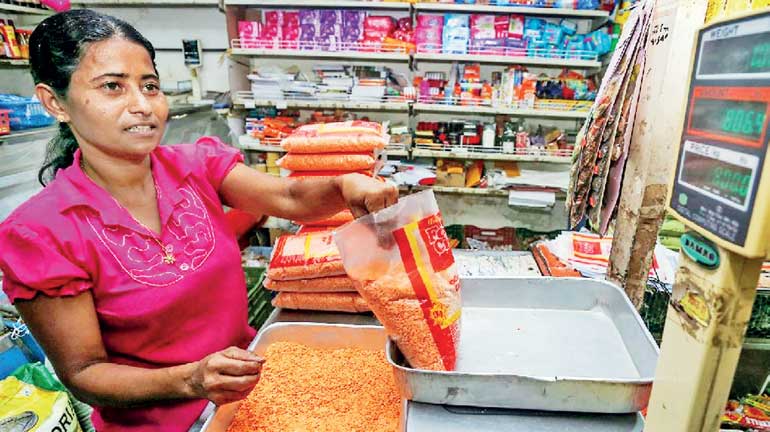Thursday Feb 26, 2026
Thursday Feb 26, 2026
Thursday, 29 March 2018 00:00 - - {{hitsCtrl.values.hits}}

By IFC
Amidst numerous hardships, a small sewing business quietly continued to operate in northern Sri Lanka. Rani*, its owner, is one of many entrepreneurs in the region who now sees an opportunity to expand her business beyond the village, increase her income, and employ more people. To do this, it is critical that she has access to adequate financing.
In a financial system that is dominated by banks, Rani would need to produce collateral acceptable to the conventional financial system, typically fixed assets, to receive financing. However, small business owners, like Rani, do not have access to fixed collateral, which typically poses a stumbling block to growth. What such entrepreneurs do have, however, are moveable assets – machinery, inventory, accounts, and receivables.
Considering the importance of an alternative solution for small business owners like Rani to access credit from regulated financial institutions, IFC, a member of the World Bank Group, worked together with the financial sector in Sri Lanka to establish a robust system that allows for movable assets to be effectively held as security, and thereby help small entrepreneurs access the money needed to grow.
Secured transactions – A possible solution
Globally, businesses are restricted from using movable collateral to obtain financing since many countries do not have effective functioning laws and registries that govern transactions using movable assets as security (secured transactions).
Secured transactions are not new to Sri Lanka. Back in 2009, legislation was enacted to enable the use of movable collateral (Secured Transactions Act No. 49 of 2009). The law, a good start, still requires amendments to make it more robust and promote its efficient usage.
For instance, the current registration system makes it difficult to determine whether the item offered as security has also been used as collateral at another bank.
Additionally, registration of assets does not provide legal protections in the form of effectiveness against third parties. This means that banks would still find it risky to accept movable property as collateral for advances.
Considering the importance of such STR legislation, IFC is providing the technical assistance required to help make the current legal framework in Sri Lanka more robust. These efforts are guided by the best practices of other countries and jurisdictions, and is done in consultation with financial sector stakeholders and authorities in the country.
It is expected that the reforms to the Secured Transactions Act could contribute to improving the enabling environment for access to finance for SMEs in Sri Lanka, a sector that’s critical for economic growth.
Secured transactions reform is also an avenue through which women, in particular, could be encouraged to begin or expand a business, since they are more likely to have movable assets to pledge.
Modern Secured Transactions Registries also increase the availability and reduce the cost of credit. They have the potential for a dramatic impact on economic development.
So, how does all this link back to Rani? Reforms in STR would enable financial institutions to accept moveable collateral from Rani and other small business owners. She will be able to access formal financing, buy the equipment she requires, create jobs within her community, and grow her business.
This, when considering similar impacts for other such SMEs, will mean improved lives, create an empowered SME sector and will have a positive impact on Sri Lanka’s economy.
*Name has been changed
(IFC is the largest global development institution focused on the private sector in emerging markets. This column is a contributory piece by the Finance, Competitiveness and Innovation team of the WBG. For more information, contact Rathnija Arandara on [email protected].)